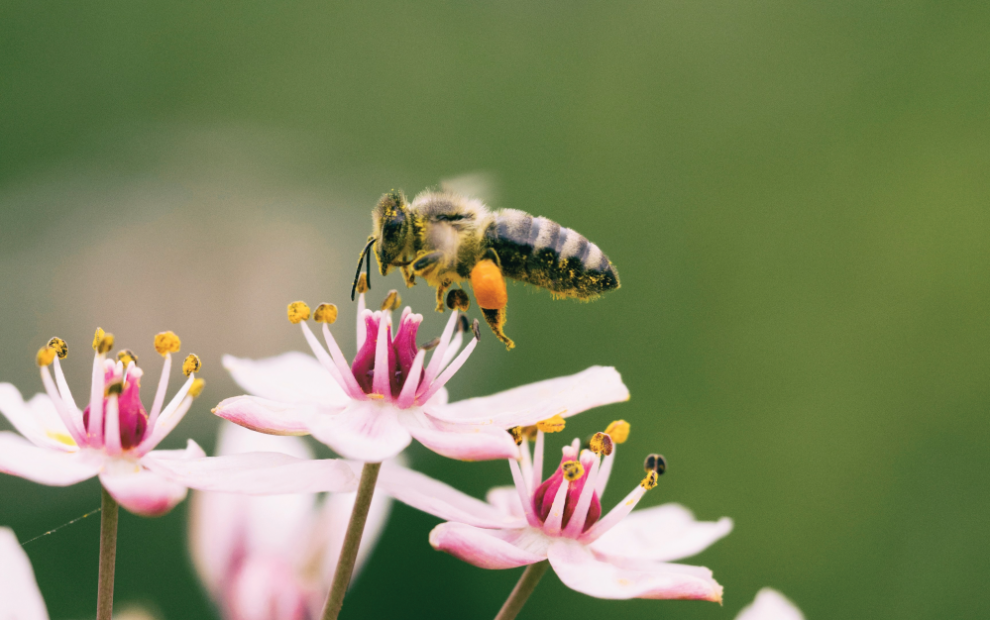At first I started looking at the bush because I was bored and a little frustrated.
I was on a walk in the woods with my husband and toddler, and I found myself needing a little distraction. The former was complaining about mosquitoes, while the latter—as he often does when let loose in the forest—had turned into a feral child who refused to wear shoes and alternated between bending down and having conversations with ants, crowing with delight while careening (barefoot) down the path, and crying and asking to be carried. I just wanted a few seconds’ worth of break, a short pause to recollect myself before turning around and walking back to the domestic chaos.
But then, with my back turned on the noises of manic toddler joy and male grumbling, waiting for them to catch up with me, I started to notice the bush that I was looking at. It wasn’t just any bush, but a wild blackberry bush—or, more appropriately, a blackberry thicket. Thick bushes, just starting to come into bloom, lined the path. In between the buds and thorns flew not just one or two, but at least five different species of bees and wasps, flitting from flower to flower, doing their work of pollinating the bush and keeping it healthy.
All of a sudden, I saw a movement right on the other side of the bush, about six feet away from me. Standing on tiptoes and looking over the brambles, I saw the tip of an ear twitch—a doe was standing right on the other side of the bush, calmly eating a snack. She seemed completely unconcerned, either by my presence or by the toddler shrieks in the background. At that moment, a chipmunk took the opportunity to run out of the underbrush and pass right in front of my feet, off on its own adventure. Somewhere deeper in the forest, an owl started calling, letting the entire forest know that evening was coming—albeit slowly—to the long June afternoon.
Catholics know that everything is interconnected. It’s been one of Pope Francis’ primary messages throughout his papacy. Our belief in a trinitarian God reminds us that there is no God without relationships. When we participate in the Eucharist, we believe that we celebrate and join together with the faithful both past and present through the body of Christ.
And yet, it is so often easy to forget this integral part of our faith. When running around in a constant frantic attempt to balance our family life, work responsibilities, and spiritual faiths, it is easy to acknowledge our connections without truly recognizing what that means—that all of creation, human and animal, living and nonliving, participates in and experiences God’s loving presence with us.
During those few moments spent contemplating a berry bush, I had a flash of what it means to be part of God’s creation. I was not apart from or superior to nature but part of it. The bumblebees and wasps, the blackberry flowers, the deer—everything around me had just as important a role to play in the ecosystem as I did.
I wish I could tell everyone I know to go contemplate their own blackberry bush, or perhaps just sit under a tree in silence and observe what goes on around them. But I recognize that not everyone has a forest to go stand in silently. What I will suggest, though, is this—find a place where you can just observe. Maybe it’s the woods or a tree, but maybe it’s an aquarium or looking at the city streets outside your apartment window. Spend some time watching the people, the animals, the plants around you. Each of them has their own role to play in God’s plan for creation. Each of them has intrinsic worth and is loved by God. We are all interconnected.
This article also appears in the August 2024 issue of U.S. Catholic (Vol. 89, No. 8, page 9). Click here to subscribe to the magazine.
Image: Unsplash/Aaron Burden














Add comment